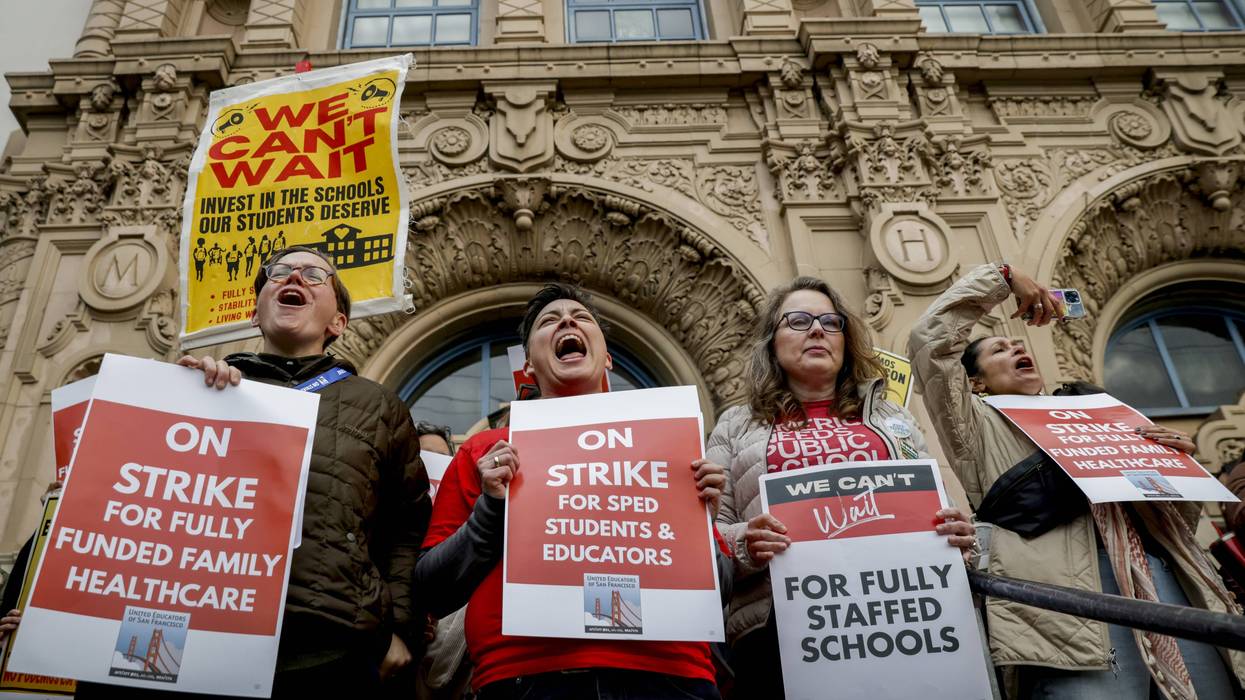But mention any of those accolades to Jackson—who was one of the first people to use the term “sustainable agriculture” in print—and he likely will tell the story of almost getting a D in a botany course and describe himself as a misfit.
Not the Top of His Class
Jackson’s education started in a two-room school near his family’s farm in North Topeka, Kansas, where classes met for only eight months because students were needed for planting and harvest. He was an uneven student whose classroom performance varied depending on the quality of the teacher and his interests at the moment. He went to nearby Kansas Wesleyan University in Salina, focusing as much on football and track as on academics. “I wasn’t what you would call a top student,” Jackson said. “I had a lot of Cs and Bs, an A here and there, but also my share of Ds.”
Jackson said the central question on his mind is much the same as when he was creating that Survival Studies curriculum nearly six decades ago—how is our species going to make the transition from a high-energy, high-technology world of 8 billion people to a smaller population that doesn’t draw down the ecological capital of Earth?
One of those D grades came in botany. “I went to the prof and explained that I couldn’t have a D in my major field, which was biology,” Jackson said. The response: “Well, you got one.” Then the professor said he would give Jackson six weeks to study for a makeup exam, and if Jackson got an A on that he would receive a C in the course. Jackson made the grade, and later that professor wrote him a glowing recommendation for the MA program in botany at the University of Kansas, which he completed in 1960. After that, Jackson was back in the classroom, teaching first in a Kansas high school and then at KWU, before heading to North Carolina State University for the PhD program in genetics.
“I guess you could say I was sort of in business for myself, and so I wasn’t worrying about grades,” Jackson said. “I either did it or didn’t, according to what was satisfying.”
Different Routes to Finding Purpose
I was teaching at the University of Texas at Austin when I first heard those stories, and I recounted them to many students, especially those who seemed too concerned about being a “good student” as the path to a “successful career.” Jackson’s story illustrates that we don’t always have to do as we are told.
I used another Jackson story to make the point that striving for the highest status job isn’t the only path to fulfillment. After earning that PhD in genetics in 1967, Jackson had a lot of options, including an offer from the University of Tennessee for a tenure-track teaching job that would have allowed him to continue the genetics research that he loved, at a time when the federal government was throwing lots of grant money at scientists. Instead, he returned to KWU to teach the same biology classes he had been teaching before the doctoral program. Why did he turn down a job at a Research 1 university to return to a small liberal arts college in a rural area?
“I suppose I’m something of a homing pigeon,” Jackson said. “I wanted back to that prairie landscape. And there was family back there, too.” But when pressed, Jackson acknowledged that he still isn’t sure why he made that choice. “I don’t know why I did what I did,” he said. “People would ask me why I turned down that job and I couldn’t give them any decent sort of answer.”
While teaching at KWU that second time, when the environmental movement was taking off, Jackson said students started pressing him to make biology courses more “relevant.” His response was to design a “Survival Studies” program that took seriously the deepening ecological crises, and he also began work on one of the emerging discipline’s first collections of readings, Man and the Environment. By the time that curriculum was in place, Jackson had been hired by California State University, Sacramento to create and run one of the first environmental studies programs in the country. But after a few years, the restless Jackson was back in Kansas on leave, dreaming of starting an alternative school that would combine book learning with hands-on work on the land. He gave up the security of his California job and, with his then-wife, Dana, created that school, The Land Institute, which is celebrating its 50th anniversary this year.
Back to my students. After telling Jackson’s story, I asked them whether he had been foolish to walk away from the more prestigious job. There’s no right answer, of course. I just wanted my high-achieving students—the ones who had been earning good grades and building stellar resumes since grade school—to realize they had options, that success can come in many forms down many roads.
A stubborn humility
Back to Jackson, who is a curious mix of humility and self-confidence. He accumulated all those accolades because he never let his critics slow him down. Jackson was ahead of his time in seeing not only problems in agriculture but what he called the problem of agriculture, the millennia of soil erosion and soil degradation caused by plowing and planting annual grains such as wheat.
For decades, Jackson said agronomists politely told him that his plan to breed perennial grains was interesting but unworkable. Today, plant breeders at The Land Institute and around the world are working on what Jackson calls “Natural Systems Agriculture,” growing perennial grains in mixtures. There’s a long way to go before those crops can feed the world, but there are perennial grains in commercial production (especially perennial rice in China) and more in development (such as varieties of wheat).
He called me one morning to describe in detail a spider web between two trees that he had been studying and then asked me a rhetorical question that goes to the core of our ecological crises: “Why is this not enough?”
Jackson jokes that he enjoys people “praising me,” but his humility is real. I worked with him on books that were published in 2021 (my summary of his key ideas, The Restless and Relentless Mind of Wes Jackson: Searching for Sustainability, and his book of stories, Hogs Are Up: Stories of the Land, with Digressions) and 2022 (the co-authored An Inconvenient Apocalypse: Environmental Collapse, Climate Crisis, and the Fate of Humanity). I have no specialized training in the areas we wrote about, but Jackson never discounted my contributions. He enjoyed being challenged and always took my ideas seriously. In fact, he attributes his success to his argumentative friends and colleagues.
There’s a story about his debt to comrades that Jackson loves to tell. One day his brother Elmer noted that Jackson was always quoting others in his writing and asked, “Don’t you have a mind of your own?” Jackson readily conceded that he did not. “I don’t know what I think until I talk to my friends,” Jackson said, emphasizing how much he has benefited from the insights of others. That’s the way it should be, Jackson said, because no one has a mind of their own, as we all puzzle through life’s challenges together.
Family Can Keep Us Honest
Jackson was the only one of six siblings who earned advanced degrees, and his connection to his family is another source of the humility that keeps his hard-charging intellect grounded.
For example, when he received his MA from the University of Kansas, his parents made the 30-mile drive from North Topeka to Lawrence for the ceremony, but Jackson said that they left once he crossed the stage and didn’t hang around for the graduation reception. Why? “I didn’t ask them,” Jackson said. “I just assumed they had chores that needed to get done.” Jackson said they were proud of his accomplishments but didn’t consider those more important than his siblings’ work in farming, nursing, and business.
Another example: When Jackson was building the house and structures that became The Land Institute, he was surprised one day to see Elmer pull up with a tractor. “Elmer simply said, ‘You’re going to need this’ and told me that I owed him $800,” said Jackson, who paid off the debt as he had the money. That was typical, not only of Jackson’s family but of many rural people who had lived through the Great Depression, which Jackson said is part of why he stayed close to home, both geographically and culturally.
Jackson, the youngest in the family, is the only sibling still living. This year he will turn 90, and he and his wife, Joan, still live in that house Jackson built from scratch—no blueprints and a limited budget—with the help of family and friends in the early 1970s. After doing his best to ignore the aging process, Jackson finally has slowed down. In 2016 he stepped down as president and in 2024 he retired completely from The Land Institute, which had evolved from an alternative school to a full-fledged research institution, a hub for the worldwide work on perennial grains. But Jackson said the central question on his mind is much the same as when he was creating that Survival Studies curriculum nearly six decades ago—how is our species going to make the transition from a high-energy, high-technology world of 8 billion people to a smaller population that doesn’t draw down the ecological capital of Earth?
A Future?
Can we manage such a down powering? Jackson is not naïve about our chances but wants to help a younger generation continue the work on his property, on The Land. He doesn’t have a specific program for them to follow but hopes they will be open to unpredictable possibilities, most of which he thinks won’t come by sticking to typical career paths.
Jackson said his own idiosyncratic choices simply may be the result of being a misfit. “I have never really fit anywhere,” he said. “I don't fit in genetics anymore. I didn’t fit in the nonprofit world. I certainly wouldn’t fit in any university. And I don’t think I would fit as a farmer.”
Jackson may be a misfit in human enterprises, but he continues to feel at home on his 30 acres of Kansas prairie, where even a short walk reignites his sense of wonder. He called me one morning to describe in detail a spider web between two trees that he had been studying and then asked me a rhetorical question that goes to the core of our ecological crises: “Why is this not enough?” Why are people not satisfied, he asked, with all the beauty, creativity, and complexity of the ecosystems around us?
If that were to be enough for more people, Jackson mused, the human species just might have a chance.
“Prairie Prophecy,” a documentary about Jackson’s work, will air on public television stations around the United States in spring 2026. For more information, visit https://www.prairieprophecy.com/. For extended audio conversations with Jackson, listen to “Podcast from the Prairie” at https://podcastfromtheprairie.com/.




